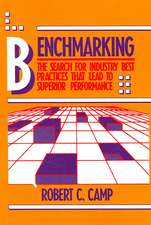Corporate Communications: A Comparison of Japanese and American Practices
Autor William V. Ruchen Limba Engleză Hardback – 30 noi 1984
William V. Ruch examines and compares corporate communications systems in the United States and Japan to discover what each can learn from the other. The author demonstrates that business organization in each country is highly reflective of the overall culture. In American corporations, communication is intended to transmit information rapidly; it is direct, efficient, and invites confrontation. Japanese corporate communciation also transmits information, but adds an element of emotional massage. In both countries business communcation is characterized by direction: American companies have strong downward systems; Japanese companies have strong upward systems. Most channels of communication used in American firms are also used in Japan, but some Japanese techniques could not and should not be used in the United States. Ruch argues that American and Japanese corporations cannot learn a great deal from one another. In fact, the only thing that Americans should learn is the value of a strong system of upward communication. The Japanese should learn that they need a faster system of decision making than the ringi system currently in use.
Preț: 439.60 lei
Preț vechi: 708.78 lei
-38% Nou
84.12€ • 88.06$ • 69.60£
Carte tipărită la comandă
Livrare economică 07-21 aprilie
Specificații
ISBN-10: 0899300286
Pagini: 298
Dimensiuni: 156 x 234 x 19 mm
Greutate: 0.62 kg
Editura: Quorum Books













